What would I gain? Nauneet Kishore Lees Newsagent & Post Office, c-store North Kensington Size: 1,600 sq ft
I can't afford the current level of business rates. I'm paying £9,000 per year. That's a lot of money when you have to pay for rent and refuse collection as well. I have a post office, which provides a set income, but it doesn't mean I can afford anything. I think I pay too much for the services we get. In fact, I would like to know what I do get for the money. I think the government should abolish business rates altogether and shift charges on to income tax. I think giving local councils the power to set and administer business rates would be a disaster. What would we gain, apart from a cut in our profits? Independent retailers would need all the help they could get, because there has been so much misuse of money on a local level.
Rates would go up Mohammed Nagra Kensington Food Centre, c-store Kensington Size: 300 sq ft
?I can't afford current business rates. Mine went up 25% a year and a half ago, but my business has gone down because of red zones and double yellow lines near my shop. Customers don't have peace of mind when they park outside, because they may be ticketed. The rates represent roughly 30% of my total sales. If they went up again, I don't think my business would survive. Every time my costs go up, I have to cut another corner. I don't know what I'm paying for, so I don't know if everything my rates cover is relevant to me or not. If local authorities took over business rates, retailers might see a benefit in certain areas, but in others there could be huge increases. I would expect a 10-12% increase if Kensington & Chelsea took over my rates.
I get a rates discount Mulji Kotecha C&S Grocers, c-store Shepherds Bush Size: 500 sq ft
?At the moment, the government is giving me a £1,000 discount on rates because I'm a small business, which is not bad. I've been getting that for four years, having contacted the local council about it initially. But if rates keep going up, then it will be difficult. I don't think I'm paying too much for the services I get at the moment and there are no particular areas I object to paying for. But then, I don't tend to read the literature I get on the subject, so I don't know what I'm paying for. I think the idea of local councils taking over business rates is wrong. Everyone should be paying the same, because we're all getting the same services. Hammersmith & Fulham, the London borough I'm in, would put the rates up if they took them on.Independent retailers are in uproar over business rates that are too high for the services they are getting, with one in nine citing specific areas they object to paying for.
That's the verdict of our latest reader survey. Although retailers believe they are not getting value for money, most want the government to continue to set local business rates, rather than see this power reverting to county councils.
"We should stick with the government so the council doesn't get their sticky fingers on it," says one.
"It is fairer for all shop owners if business rates are set centrally, as I think most councils are greedy," says another.
One shop owner feels that business rates are often used as a political tool by local authorities, so they were best handled by the government. Others feel business rates should be a local issue as councillors are closer to any given area. "If it's up to the council, at least you can look them in the eye when you complain about it," says one shop owner.
These findings come as retailers' leaders urge Gordon Brown to resist calls to return to local authorities the power to set business rates ('Local business rate proposal opposed', The Grocer, 14 October, p13).
The British Retail Consortium fears moving to a localised system of business taxation could cause rates to escalate if councils increased them to boost income. This view is plainly stated in its submission to the Treasury ahead of the Chancellor of the Exchequer's pre-Budget statement, scheduled for early December.
"Because only people can vote, not businesses, stores are seen as a soft target and are seen as a cash cow by local authorities," says BRC head of property and planning Paul Browne. "Back in 1979 and the 1980s, when rates were set locally rather than nationally, there was great disparity across the country."
Even at current levels, many store owners are still unsatisfied with the services they receive. "Apart from sweeping up outside my shop from time to time, I don't see what I'm paying for," says one retailer quizzed by The Grocer.
"We did not get a reduction in business rates when water rates started to be billed separately," says one retailer.
Services offered to independents by the police also angered many. "The police do nothing when I contact them," says one retailer. Another complains it "took the police hours" to get to her shop when it was broken into.
Although one in six retailers say their businesses would survive further rates increases, they say it would "take some doing". More than 40% feel their business could go under.
I can't afford the current level of business rates. I'm paying £9,000 per year. That's a lot of money when you have to pay for rent and refuse collection as well. I have a post office, which provides a set income, but it doesn't mean I can afford anything. I think I pay too much for the services we get. In fact, I would like to know what I do get for the money. I think the government should abolish business rates altogether and shift charges on to income tax. I think giving local councils the power to set and administer business rates would be a disaster. What would we gain, apart from a cut in our profits? Independent retailers would need all the help they could get, because there has been so much misuse of money on a local level.
Rates would go up Mohammed Nagra Kensington Food Centre, c-store Kensington Size: 300 sq ft
?I can't afford current business rates. Mine went up 25% a year and a half ago, but my business has gone down because of red zones and double yellow lines near my shop. Customers don't have peace of mind when they park outside, because they may be ticketed. The rates represent roughly 30% of my total sales. If they went up again, I don't think my business would survive. Every time my costs go up, I have to cut another corner. I don't know what I'm paying for, so I don't know if everything my rates cover is relevant to me or not. If local authorities took over business rates, retailers might see a benefit in certain areas, but in others there could be huge increases. I would expect a 10-12% increase if Kensington & Chelsea took over my rates.
I get a rates discount Mulji Kotecha C&S Grocers, c-store Shepherds Bush Size: 500 sq ft
?At the moment, the government is giving me a £1,000 discount on rates because I'm a small business, which is not bad. I've been getting that for four years, having contacted the local council about it initially. But if rates keep going up, then it will be difficult. I don't think I'm paying too much for the services I get at the moment and there are no particular areas I object to paying for. But then, I don't tend to read the literature I get on the subject, so I don't know what I'm paying for. I think the idea of local councils taking over business rates is wrong. Everyone should be paying the same, because we're all getting the same services. Hammersmith & Fulham, the London borough I'm in, would put the rates up if they took them on.Independent retailers are in uproar over business rates that are too high for the services they are getting, with one in nine citing specific areas they object to paying for.
That's the verdict of our latest reader survey. Although retailers believe they are not getting value for money, most want the government to continue to set local business rates, rather than see this power reverting to county councils.
"We should stick with the government so the council doesn't get their sticky fingers on it," says one.
"It is fairer for all shop owners if business rates are set centrally, as I think most councils are greedy," says another.
One shop owner feels that business rates are often used as a political tool by local authorities, so they were best handled by the government. Others feel business rates should be a local issue as councillors are closer to any given area. "If it's up to the council, at least you can look them in the eye when you complain about it," says one shop owner.
These findings come as retailers' leaders urge Gordon Brown to resist calls to return to local authorities the power to set business rates ('Local business rate proposal opposed', The Grocer, 14 October, p13).
The British Retail Consortium fears moving to a localised system of business taxation could cause rates to escalate if councils increased them to boost income. This view is plainly stated in its submission to the Treasury ahead of the Chancellor of the Exchequer's pre-Budget statement, scheduled for early December.
"Because only people can vote, not businesses, stores are seen as a soft target and are seen as a cash cow by local authorities," says BRC head of property and planning Paul Browne. "Back in 1979 and the 1980s, when rates were set locally rather than nationally, there was great disparity across the country."
Even at current levels, many store owners are still unsatisfied with the services they receive. "Apart from sweeping up outside my shop from time to time, I don't see what I'm paying for," says one retailer quizzed by The Grocer.
"We did not get a reduction in business rates when water rates started to be billed separately," says one retailer.
Services offered to independents by the police also angered many. "The police do nothing when I contact them," says one retailer. Another complains it "took the police hours" to get to her shop when it was broken into.
Although one in six retailers say their businesses would survive further rates increases, they say it would "take some doing". More than 40% feel their business could go under.







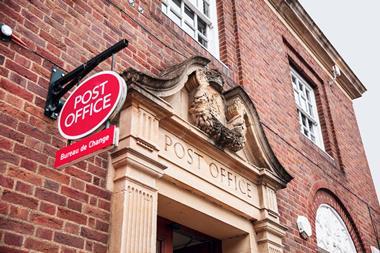
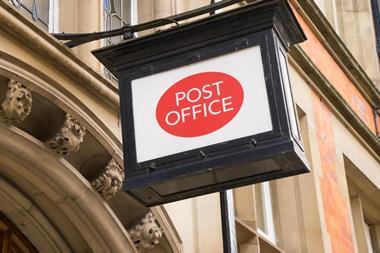

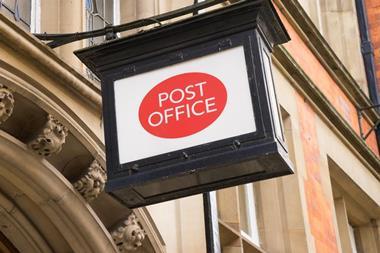
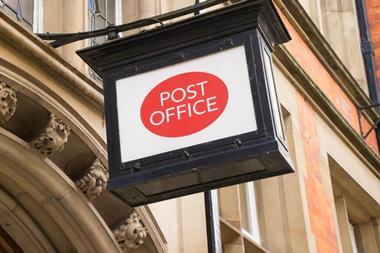
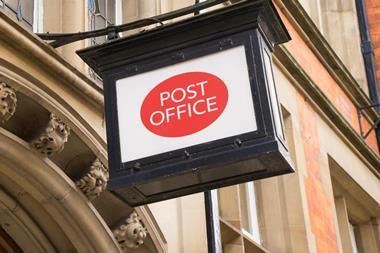






No comments yet